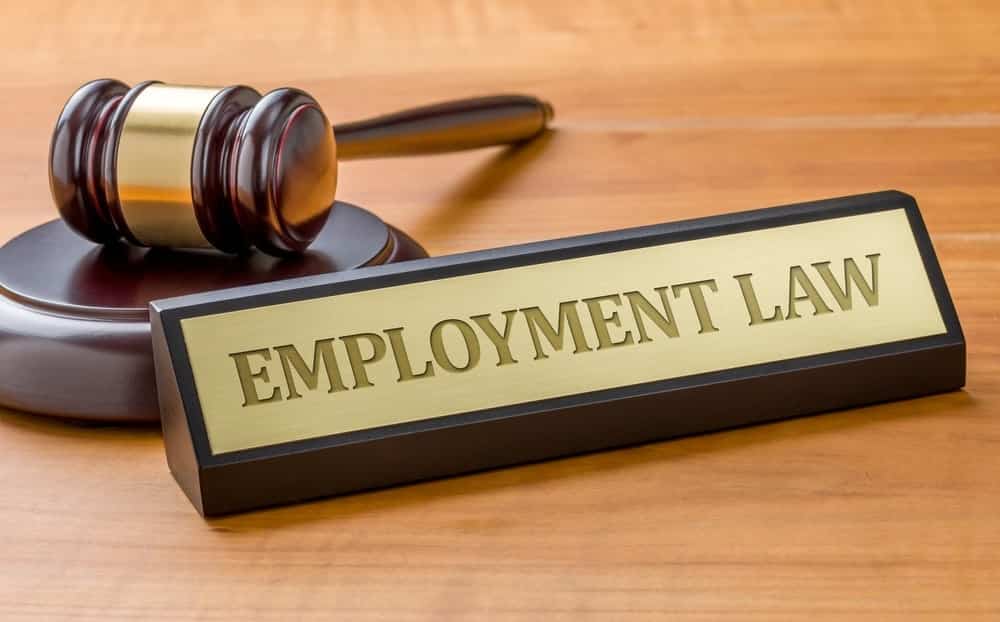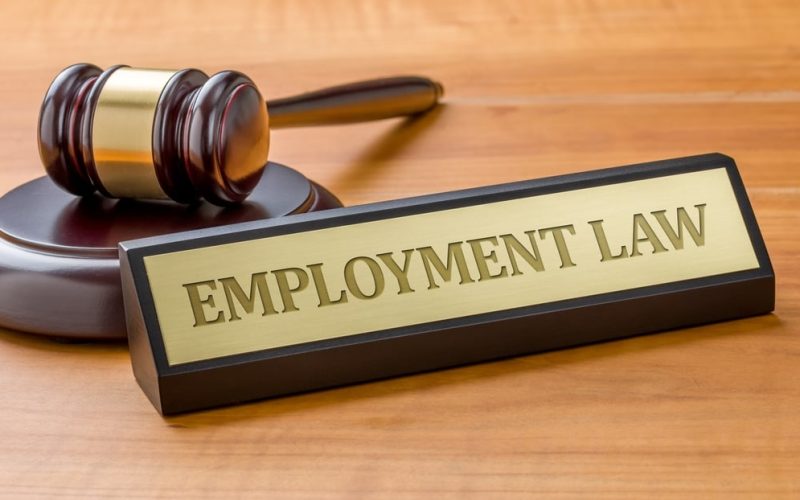When you run a small business, you have a lot of different responsibilities. Not only do you need to develop products, market them, and sell them, but you have to do accounting and hire employees. Doing so many different things can cause you to run into trouble, which is why employment lawyers can help. Take a look at the top six things to know about employment law for business owners.

#1. You Should Customize Employee Contracts
You can find standard employment contracts online, but they may not include everything you need included in your contracts with your employees. Consider your organization and what your expectations are, and make sure that your contract covers everything. If you leave anything important out, it can lead to potential legal issues down the road. Make sure that the contracts are in line with employment law and specify your expectations.
#2. Create an Employee Handbook
If you create an employee handbook, you can make it easy for everyone in your organization to understand what you expect of them. Your company can make your policies clear by outlining them in the book, and it can be comprehensive enough to ensure that employees can find out anything they need to know. This can serve as an addendum to any contracts they sign so that they can have any questions answered by referring to it.
#3. Create an Intellectual Property Agreement
One area that you need to address with your employees is the ownership of intellectual property. You should make confidential information confidential and let them know how you will protect it. You may want to stop employees from creating competing brands for a period of time in the future, but it is important to stay within the law. Employment lawyers can help to ensure that your expectations are clear.
#4. Train Your Managers
It is very important for your managers to understand how to do their jobs. You may not be large enough to have an HR department, but you need to stay on top of the employment laws so that you are doing everything correctly. You can invest in training your managers so that they also have up to date information on these laws, and they will be able to make sure that your business is in line with Canadian employment law.
#5. Make Your Dismissal Procedure Clear
It is important for you to spell out your dismissal procedure so that everyone knows what to expect. This process should be in the employee handbook, and it should be in the contracts as well. You need to stay on top of employment law so that you are following all of the most recent regulations and laws. This will help you prevent wrongful dismissal claims in the future.
#6. Hire the Right People for the Job
Small businesses need to hire the right people for the job. The best way to do this is to know exactly what you are looking for, and then start interviewing people. You should have very clear job requirements and let the person know what you expect.
You can create an interview plan so that you find out what you need to know in a short time. You won’t want to interview every single person the same way, but you will need to use the same criteria to evaluate each of the people you interview. Make sure that they know what is expected of them, and have the same expectations for anyone in this position. This ensures that you have no misunderstandings later and gives you the best chance of hiring a good employee who can do the job.
What Are the Main Characteristics of Employment Law?
Employment law is the branch of law that deals with the rights, duties, and responsibilities of both employers and employees. Employment law covers things like wages, safety at work, discrimination, and firings that were done wrong.
Can a Company Have Different Rules for Different Employees?
In other words, if the policies adhere to current federal and state laws, firms may have separate policies for various departments or job classifications. Employers must strike a balance between company needs and potential problems that different policies may have with staff morale.
What Are the Main Employment Laws in THE US?
The American with Disabilities Act, the Equal Pay Act, the Age Discrimination in Employment Act, the Fair Labor Standards Act, the Family and Medical Leave Act, the Immigration Reform and Control Act, the National Labor Relations Act, and Title VII (of the Civil Rights Act) are the main federal employment laws.
What Are Your 3 Rights as an Employee?
the right to information on matters of health and safety. the right to take part in choices that might influence their health and safety. the ability to decline tasks that would endanger their health, safety, and the welfare of others.
Related Article
- HOW TO START PAYROLL FOR SMALL BUSINESS: 2023 Best Easy Guide
- INVOLUNTARY TERMINATION: Meaning, Reasons & Impacts In The United States
- INSUBORDINATION: Best Workplace Practices & All You Need
- Intangible Property: What Is Intangible Property (+ Practical Examples)
- MARKETING SERVICES: Digital Marketing Services & Contracts
- Proforma Invoice: What Is Proforma Invoice & Examples
- UNEARNED SERVICE REVENUE: Definition, Examples & Calculations
- 8 Non-IT Remote Only Jobs You Can Start Doing Right Away






